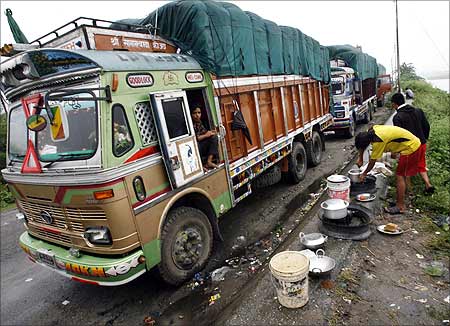 Bringing alcohol, tobacco and petroleum under the purview of GST will help expand the tax base
Bringing alcohol, tobacco and petroleum under the purview of GST will help expand the tax base
There are so many issues in GST which are not settled, but I am now focusing on mostly those, which came up for discussion, after a Rajya Sabha select committee, on July 20, submitted a report endorsing majority provisions of the Goods and Services Tax Bill.
Two points are most relevant, namely, the issue about allowing states to levy one per cent additional tax and the Centre agreeing to compensate states for revenue loss for five years.
The Congress filed a dissent note on eight provisions, including composition of the GST council and the proposal to allow states to levy one per cent additional tax.
There is also the issue of revenue neutral rate of tax (which has of course not been dealt with by the committee) which merits discussion here.
First, let us take the one per cent additional levy which is not to be given credit.
This is the one which is most resented by traders and manufacturers. But there are certain redeeming features as well.
This was earlier proposed, at the insistence of states, that even stock transfers of goods of a company’s transfer goods from godown to another of their own and that would not attract one per cent.
That was the view of the Centre. Now, the select committee has confirmed this view that it is not leviable on the stock transfers.
It will immensely benefit trade and industry.
Secondly, this one per cent is less than the four per cent which was being charged earlier.
So, it is a better deal.
Lastly, it may be discontinued if the revenue collection is buoyant and it depends on the GST council where two-third majority will decide the issue.
The second issue is about the compensation of states for five years to the extent of 100 per cent of the loss.
The Centre’s agreeing to the states’ demand for 100 per cent for five years has been a master-stroke. In fact, this will not be necessary for five years at all.
In all arguments of the Centre as well as the expert committees on the subject, it has been held that the revenue will increase substantially, if only for better compliance and trade facilitation which will increase due to common market.
If it is so, it is only theoretical that the compensation will be 100 per cent for five years.
The legend has it that you can make a promise which you do not have to keep.
The third issue is about the revenue neutral rate.
Some economic analysts are of the view that if the three items -- alcohol, tobacco and petroleum -- are included, then the neutral rate of 27 per cent may come down probably to 18 per cent. Actually, this is not a logical proposition.
It can come down only if the average duty of these three items is less than 27 per cent. It is just the opposite of it.
These three are highly taxed items.
Cigarette is very highly taxed, both, by the Centre and the states.
The rate comes to more than 100 per cent easily. Similar is the case of alcohol.
And it varies from state to state.
Petroleum is also a very heavily taxed item like the others.
The average tax, whether we take median or plain average, which is the neutral rate for these three items, is much higher than the average rate for other goods in respect of central excise, service tax and sales tax.
So, if these three are included in GST, there is no chance at all that the revenue neutral rate will come down.
Some expert committees, in the past, have recommended just 18 per cent, but they never calculated in great detail, as would have been done by the National Institute of Public Finance.
If there is a political decision to reduce it to 18 per cent or 20 per cent that will be arbitrary and there will be serious revenue short fall.
One has to remember, also, that even if these three items are included in GST, then also there will be a separate rate far higher than the general rate.
With these three items, there will be four rates.
There are good reasons for including them for expanding the tax-base but not for bringing the general rate down.












 © 2025
© 2025